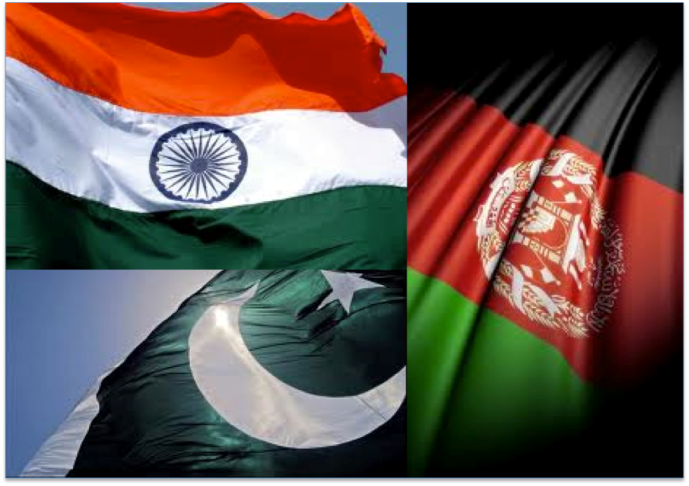 Of the two Brits in India, Mark Tully is hard to dislike and William Dalrymple sometimes difficult to agree with.
Of the two Brits in India, Mark Tully is hard to dislike and William Dalrymple sometimes difficult to agree with.
It isn’t as if Tully hasn’t been candid; he was critical of emergency and got expelled for a while. He points out our warts wherever he sees them. But his are the laments of someone who is exasperated every time the country, he has high hopes from, fails to live up to his expectations, and the expectations of Indians as well. That’s why he finds a responsive echo every time he complains and ready applause when he stands up for India. Understandably therefore, Mark Tully has been a household name for years, in cities and in the villages of India.
William Dalrymple is cast in a different mould and his appeal is greatest with the elite in Indian cities. It could well be a generational thing because he is younger and his may be a materialistic approach more in tune with the present times. There is no doubt that he writes brilliantly, and the bulk of his writing is about India. Alas, he often dips his pen in satirical ink and gazes deep down the drain.
His latest essay concerns India’s alleged role in Afghanistan, after the withdrawal of American troops, and the Pakistani anxiety about it. It is odd that despite some statements of doubtful validity, it should have been given the prominence it received from the Brookings Institute. An establishment of such repute is usually circumspect; it takes extra care to avoid projecting controversial theories and assertions that rest on lean grounds. But there it is and Dalrymple starts roaringly; his article’s title a proof of his intent, ‘A deadly triangle — Afghanistan, Pakistan and India’.
It is possible that this view, post American withdrawal from Afghanistan, coincides with what some in the American strategic establishment might wish to propagate. The theory spun by Dalrymple, therefore, seems tailor-made to suit the western make-believe.
Dalrymple may also have been inspired by Henry Kissinger’s interview to Financial Times in 2011, “An India-Pakistan war becomes more probable…
Therefore some kind of international process in which these issues are discussed might generate enough restraints so that Pakistan does not feel itself encircled by India and doesn’t see a strategic reserve in the Taliban… Is it possible to do this? I don’t know. But I know if we let matters drift this could become the Balkans of the next world war.”
The ageing doctor has for long baited India and remains grateful to Pakistan for the favours it did as America’s go between with China, and with the wider Islamic world. Therefore Kissinger could well promote a scary scenario with the objective of putting pressure on India to make concessions on the Kashmir issue. This line is also being advanced by some in Washington, and it is this that Dalrymple may be hinting at by cooking up a ‘deadly triangle.’
As an influential historian Dalrymple should have chosen his words with care, especially his assertions about the recent events which people can easily verify for themselves. For instance he says, “The hostility between India and Pakistan lies at the heart of the current war in Afghanistan.” Is that really so? Isn’t it a fact that the current war in Afghanistan followed 9/11?
Next, Dalrymple goes on to echo Kissinger, “The continuation of clashes between India and Pakistan in — and over — Afghanistan after the US withdrawal is dangerous for all countries in the region and for the world.”
Here, Dalrymple chooses to ignore the repeated rejection by India of American requests for its military support in Afghanistan. These suggestions had started coming in immediately after the start of the American war in Afghanistan, but India was consistent in sticking to a developmental role. Now, how can India fight a war “in” Afghanistan if it does not have soldiers there and if it refuses to supply the Afghan government with the arms that it had recently requested for?
But Dalrymple carries on regardless. This time he maintains, “For the Pakistani military, the existential threat posed by India has taken precedence over all other geopolitical and economic goals.”
Yet, very soon, he feels differently, “In fact, however, the threat to Pakistan’s territorial integrity and sovereignty is clearly no longer from India at all, and arguably never has been.”
Whether this somersault is to sugarcoat the negative tone of his essay is difficult to say. But the damage has been done. Without saying it directly, he says it all. The theory that India is a villain in Afghanistan gains ground, as does the implied impression that India must be asked to show accommodation on Kashmir to appease Pakistan and thereby facilitate casualty free withdrawal of the American troops from Afghanistan. In the process Dalrymple has been lionised for producing another remarkable work.
But the question that must be asked concerns our response. What have we done to put facts in public domain; after all that is what public diplomacy is about. Why didn’t we rebut him during the well publicised presentation at the Brookings with simple facts like India’s non-military and development oriented engagement in Afghanistan?
The fact is that India’s ancient association with Afghanistan has always been fraternal, just as Kashmir’s links with India have been as integral as the origin of its name that historians claim derives from Rishi Kashyap. Invaders and marauders have intermittently andviolently stirred the pot but these have been unpleasant interludes before status quo and serenity set in again. If the Western world doesn’t encourage Pakistan on Kashmir, the region stands a better chance of finding an agreeable equilibrium.